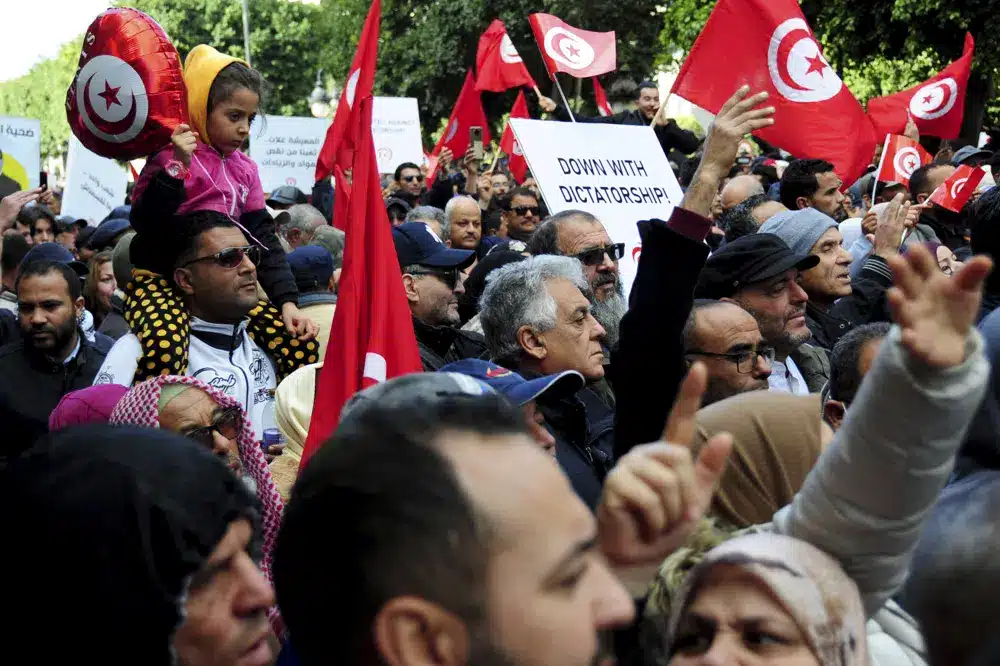Protests in Tunisia emerged on Saturday as hundreds took to the streets to protest against Tunisia’s President Kais Saied who protesters accused of seeking to install a new dictatorship amid Tunisia’s deteriorating economic crisis.
Various opposition groups in Tunis held multiple rallies, which were met with a heavy police presence to prevent the protests from turning violent.
Saturday’s protests coincided with the 12th anniversary of the fall of Tunisian dictator Zine El Abidine Ben Ali who was known for his authoritarian rule and widespread human rights abuses during his 23 years in power. Zine El Abidine ben Ali’s rule has been compared to President Saied as both presidents are perceived as implementing policies that benefit themselves and their inner circle at the expense of the Tunisian people. Ben Ali’s rule which ended in 2011 marked the beginning of a popular uprising against his government, commonly known as the Tunisian Revolution.
The same anger and frustration among Tunisians over economic inequality, corruption and a lack of political and civil rights seen in 2011 were seen in Saturday’s protests in Tunisia. Anger at President Saied has grown since he dismissed the government and suspended parliament in July 2021, citing a threat to the country. President Saied also dissolved parliament in March last year and drafted a new constitution which effectively granted him new powers after a referendum was held in June although only 30 per cent of eligible voters participated. Another major grievance for Tunisians is that President Saied has repeatedly extended the country’s state of emergency. Earlier this month, it was extended for another month. Under Tunisia’s emergency law, which grants the authorities exceptional powers, the judiciary is not required to sign off on these powers. These exceptional powers include carrying out home arrests, banning official meetings, imposing curfews, monitoring media and press, prohibiting assemblies, and media censorship without permission from the judiciary.
Tunisians today are protesting as they are facing a severe economic crisis. Due to years of drought, Tunisia is having difficulty providing enough water and the IMF is pressuring the government to discontinue subsidies for energy, food, and water to ensure that the country’s finances are saved. Tunisia has also been facing weeks of shortages of many food commodities including medication, sugar, cooking oil, milk, and butter have all been reported with matters appearing particularly bad in the suburb regions distant from the capital. Tunisia protests have been increasing in recent months amidst worsening economic and social conditions.
Image Credit: AP Photo/Hassene Dridi



















